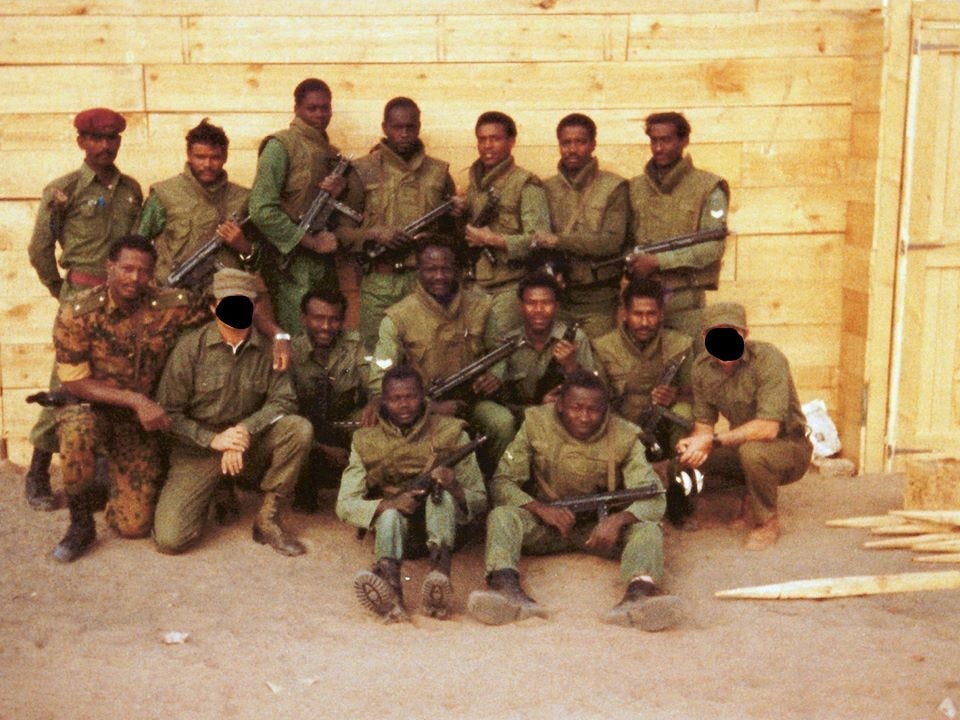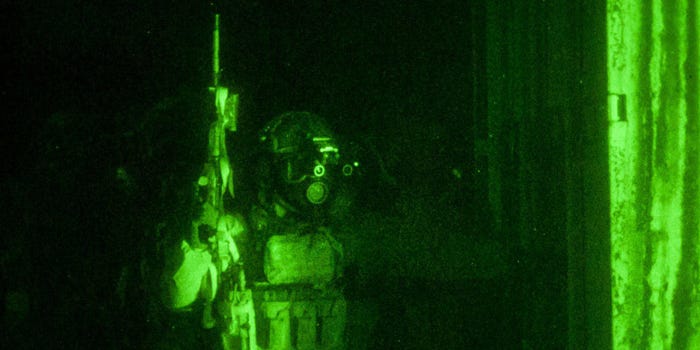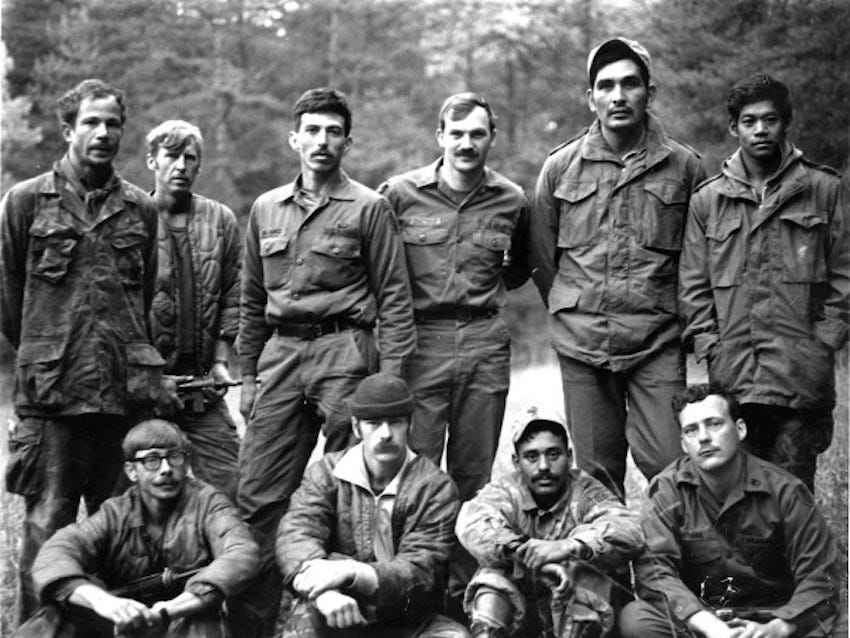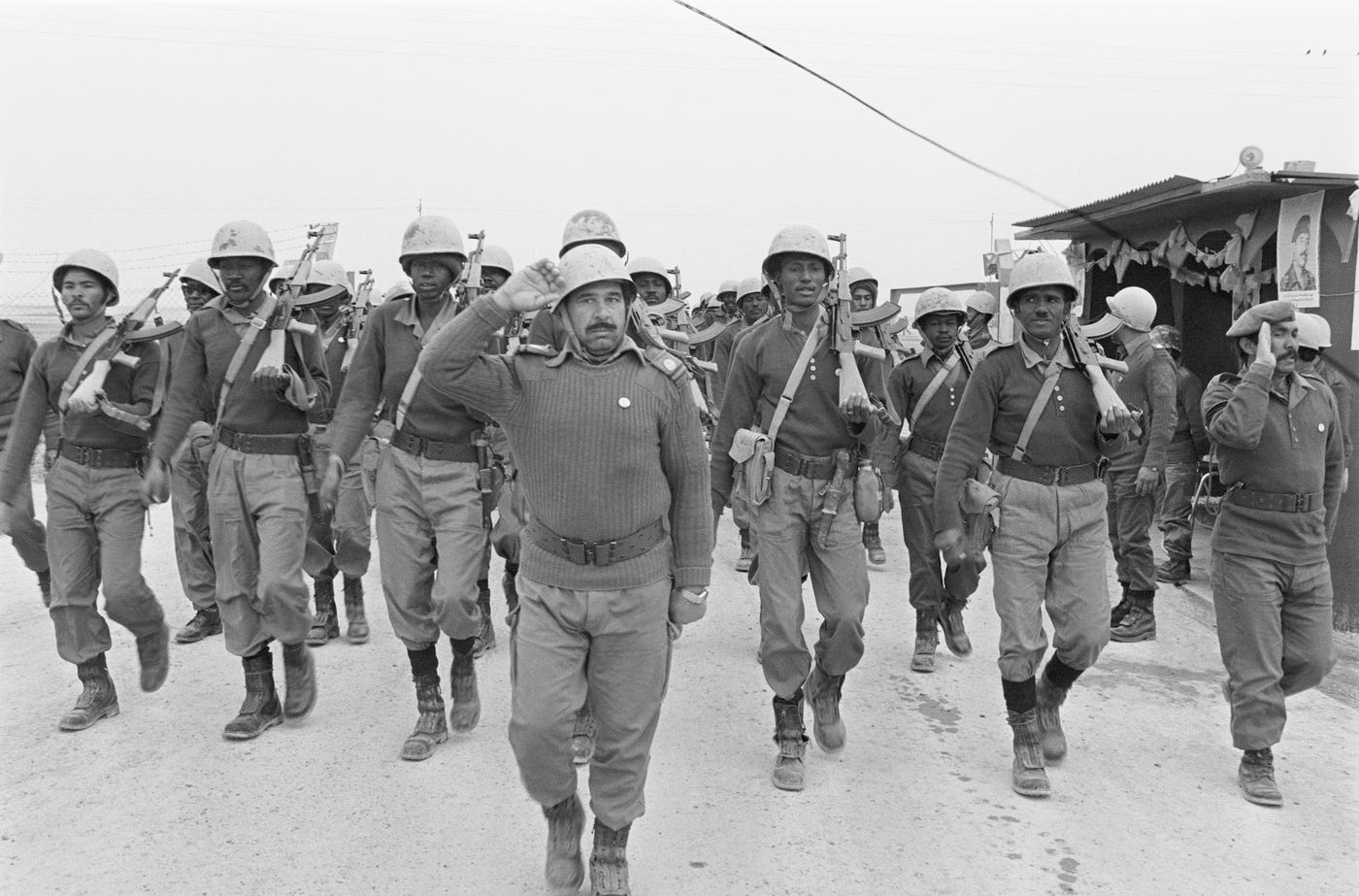So instead, two Delta Force operators — an officer and a senior enlisted operator — flew to Africa and joined the Sudanese counterterrorism unit of about 30 operators.
The Delta Force operators had trained the Sudanese special operators the previous year. A team of six American commandos and one British SAS operator had gone to the African country and essentially set up a counterterrorism capability for the Sudanese military.
The American commandos went from the capital of Khartoum to the city of Juba, close to the area where the hostages and their captors were hidden. In addition to the Delta Force element, the Pentagon deployed a signals team from an intelligence special missions unit to monitor the communications of the hostage-takers.
The Pentagon also deployed a Keyhole reconnaissance satellite to take pictures of the bandit’s camp. Since the Sudanese were taking the lead on the operation, JSOC and the CIA passed the satellite pictures to them.
The Sudanese commandos and their American advisers spent the next two weeks watching the camp and rehearsing their plan.

The main assault force was composed of 14 Sudanese commandos whose job was to secure the hostages. A machine-gun team would provide support fire, while about 15 operators would secure the perimeter and ensure the terrorists received no outside support during the operation and that none of them escaped during the pandemonium of the battle.
“When you’re going after somebody, you go when there’s a high probability he is there, not when you want to go or when it is convenient for you to go. There is an inherent danger in that, but that is the nature of our job,” a retired Delta Force operator told Insider.
When the time was right, the Sudanese launched a surprise air assault on the camp and managed to rescue all five missionaries unscathed while killing most of the hostage-takers.
Following the operation, the five missionaries signed two Bibles and gave them to the two Delta Force operators as a sign of appreciation for their role in the operation.
For several years the Sudan hostage rescue was kept under wraps, and it wasn’t widely known until former Delta Force operator Eric Haney wrote about it in his memoir, “Inside Delta Force: The Story of America’s Elite Counterterrorist Unit.”
Several of Haney’s former Delta colleagues accused him of making up events in the book and of embellishing his actions while service with Delta. The 1983 Sudan raid was also detailed in Sean Naylor’s 2015 book, “Relentless Strike: The Secret History of Joint Special Operations Command.”
The operation in Sudan was one of the first for a special-operations unit that views itself as a group of “quiet professionals” who often don’t advertise their work or seek public recognition for it. Delta Force’s reputation grew, however, prompting several foreign governments and special-operations units to request their help when they encountered an emergency, which still happens today.
Delta Force has had a quiet or undisclosed role in many operations since then. During the Japanese embassy hostage crisis in Peru in 1996-1997, for example, Delta sent some operators in an advisory role. It did the same during the debacle at Waco, Texas, when the FBI’s Hostage Rescue Team raided the building of a religious sect after a long standoff in 1993, killing dozens.
This article was written by Stavros Atlamazoglou and originally published on Insider.












COMMENTS